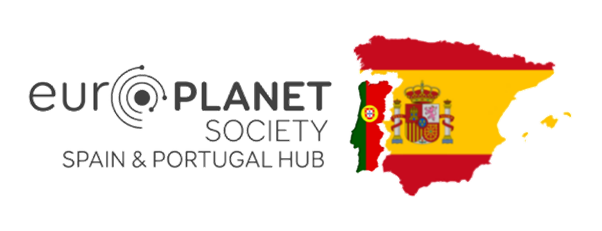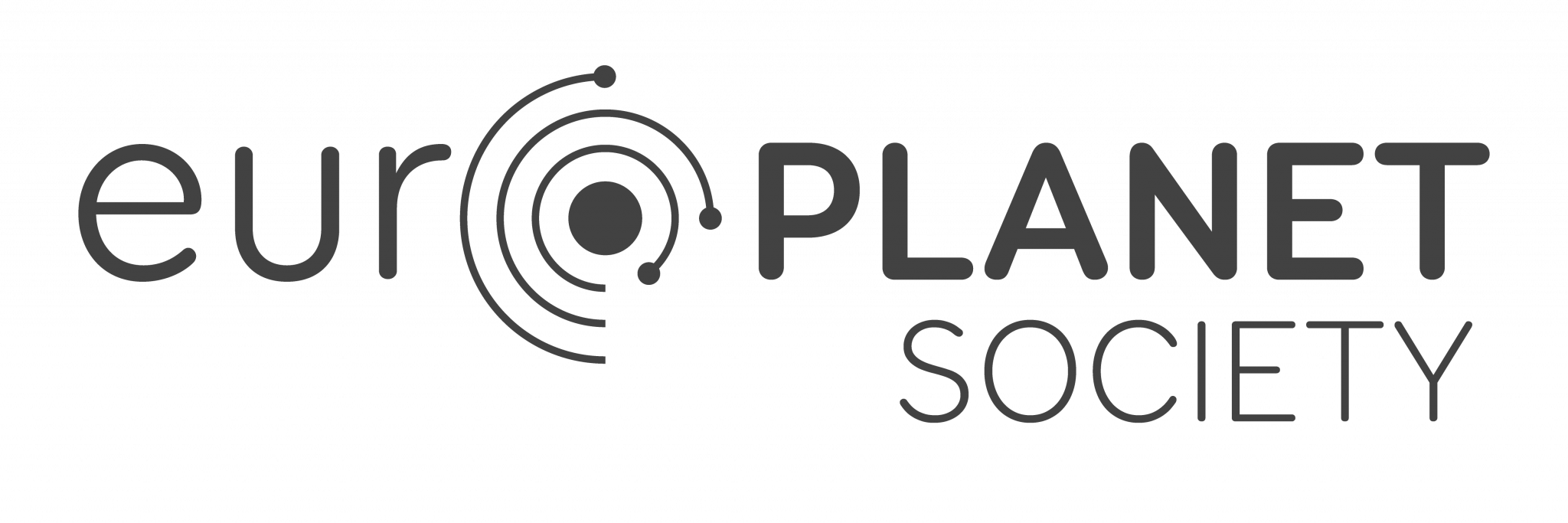Space
Exploration
Amateur
Community
Outreach
Activities
Networking
Hub Activities
Members
Europlanet Society
Scientific
Conferences
Facilities
Ground Based Telescopes
Professional
Community
Join
Europlanet Society
Industry
& Stakeholders
Title: Massive navigation of planetary images from the PVOL database
Center: Universidad del País Vasco
Type: Postdoctoral
Description:
The Planetary Sciences Group at UPV/EHU in Bilbao, Spain, offers a short post-doc position of 10 months (extendable) to work with amateur images of Solar System planets in the PVOL database at http://pvol.ehu.eus. The contract is funded by the Europlanet 2024 Research Infraestructure as part of its VESPA activities.
The goal of the project is to develop a system to massively map in a semi-interactive way selected ground-based images of the planets, with the main target being Jupiter. These maps will be uploaded into the PVOL database and will be used to investigate changes in the atmospheres of the planet. While most of the work will be technical, science objectives will be linked to: (1) analysis of zonal winds and atmospheric changes on different time-scales; (2) improvement of spatial resolution by combining information of different maps from different observers. In addition, movies of the maps will show the planet’s dynamic atmosphere for outreach purposes.
The candidate will work with Artificial Intelligence techniques to identify the planet’s limb on the image files and fit an ellipse to the planet. Navigation will be provided by using the SPICE system. Formal training on SPICE will be given at the host institution. Most technical challenges will be related to pattern recognition (identifying the planet position and orientation on PVOL images).
Interested candidates should write to Ricardo Hueso (e-mail: This email address is being protected from spambots. You need JavaScript enabled to view it.).
Title: Radio emission from star-planet interaction
Center: Instituto de Astrofísica de Andalucía (IAA-CSIC)
Type: Predoctoral
Description:
The doctoral fellowship programme INPhINIT ”la Caixa” is devoted to attracting talented Early-Stage Researchers of any nationality to pursue their PhD studies in the best Spanish and Portuguese research centres and units with excellence distinction.
Research Project / Research Group Description
This project has two main goals. First, to search for radio emission arising from starplanet interaction in nearby stars with confirmed exoplanets. The detection of starplanet radio emission would allow us to use it as an independent tracer for future searches of habitable planets. The second main goal is to test star-planet interaction scenarios via radio observations for a number of stars. We will focus on M stars, which are the most abundant type of stars in our galaxy and, due to their low mass, are ideal for searching Earth-type planets. We intend to exploit the fact that the magnetic interaction between this type of stars with planets close enough can lead to radio emission that can be detectable from Earth.
This project has a strong observational component, and the successful candidate will become proficient in the use of radio interferometry techniques, including the software needed to reduce the radio data, which the main workhorse of the project. The candidate will work with radio interferometry data collected so far from state-ofthe-art interferometers, including the the Jansky Very Large Array (JVLA), the Giant Metre Wave Ratio Telescope (GMRT), the MeerKAT interferometer, the e-MERLIN, or the international LOFAR telescope. The successful candidate will become part of the CARMENES collaboration, and is expected to lead additional radio proposals from the planets that will be discovered, searching for signals of radio emission from the most promising targets to show star-planet interaction. The successful candidate will also become familiar with the physics behind the radio emission from exoplanets, and from star-planet interaction, as well as with magneto-hydrodynamic simulations to study the potential habitability of exoplanets around host stars. The overall goal of this project is to advance in our understanding of the origin of radio emission in exoplanets, tying it to the physical properties of the exoplanets and their host stars.
Postdoctoral contract in science of small solar system bodies - Comet Interceptor (ESA-JAXA) mission
The Solar System Department of the Instituto de Astrofísica de Andalucía-CSIC (https://www.iaa.csic.es/en#) (Granada, Spain) is offering a postdoctoral research position in the TECHSS group led by Luisa Lara. Our research group focuses on observational and theoretical studies related to Solar System Formation being intensely involved (at Co-PI and Co-I level) in the technical development and scientific exploitation of instrumentation on board different space missions, such as Bepi-Colombo (ESA-JAXA), EnVision (ESA), and Comet Interceptor (ESA-JAXA).
We seek an outstanding candidate with experience in the science of small solar system bodies, either theoretical or observational, to take a leading role in our team in cometary science-related research. In particular, the successful candidate is expected to actively participate, in collaboration with group members, in the research associated with the preparation and exploitation of the Comet Interceptor mission, in which our group is involved in the development of four instruments (CoCa, MANIaC, OPIC, and EnVisS).
The post will remain open until filled, expecting candidate incorporation as early as possible. The initial contract will last up to the end of our current funded research project, 31st of August 2026, with a total duration depending on the incorporation date.
Interested candidates can send his/her CV and a brief description of his/her research interest to Luisa Lara (This email address is being protected from spambots. You need JavaScript enabled to view it.). Do not hesitate to contact us with any questions or necessary information about the offered contract.





